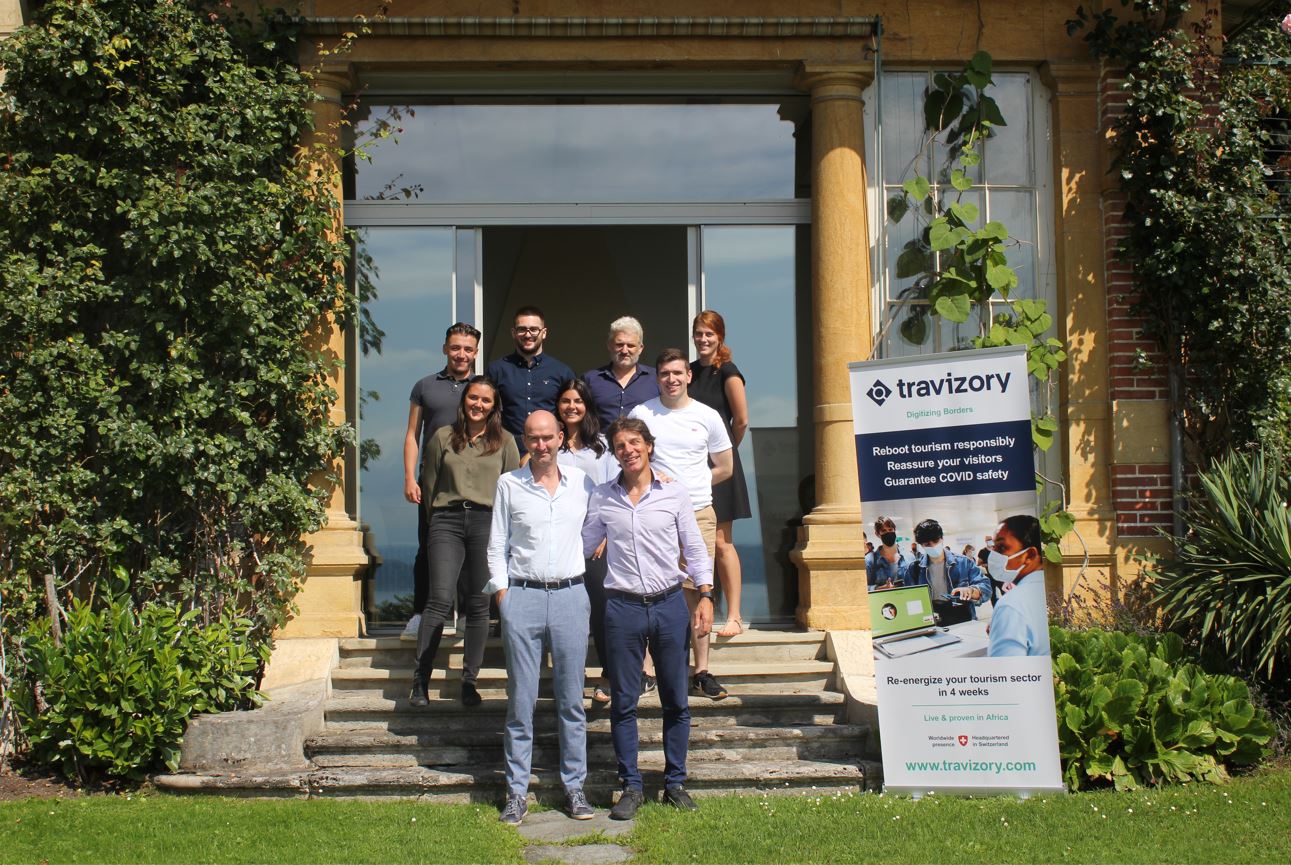Thanks to their visitor management platform, unique on the market, Travizory helps countries to reopen or keep open their borders in the light of COVID-19 or other threats. This is done more securely, more transparently, and in a fully digitised process. Their system uses state-of-the-art biometric, AI and machine learning technologies.
Meet Ygor Lutz and Renaud Irminger, two enthusiasts of digitalization at the service of travel.
Why did you choose the identity management market?
We identified 150 countries that would be required to implement a travel authorisation system similar to the ESTA process in the US. It applies to countries that operate without a visa system. However, we felt that the user experience was not good with the ESTA system and that other sources of data could strengthen security risk assessments. We centred our idea around the smartphone, which is a key part of the experience, and which must be able to scan a passport, a face or even carry out a complete “Know Your Customer” process. Our ultimate goal: to digitalise border crossing, which is currently firmly rooted in the paper world.
The first country to use your solution is the Seychelles. What are the reasons for this?
We drew up a list of criteria for testing our solution, which enabled us to identify about fifteen eligible countries. Given the agility of our startup organization, we needed to address a small country whose economy is highly dependent on tourism. In addition, the country had to face a significant security risk, which is the case of the Seychelles: all world citizens are accepted in the country, immigration is important and it is used as a pivotal location for the drug trade.
In December 2019, we had the chance to meet with the Seychelles consular representation and the country’s president who wanted to upgrade their border control system. We submitted the first quotes and then COVID-19 surfaced. The summer of 2020 was going to be crucial for the country, which needed to reopen its borders quickly in order to boost the tourism sector. We were therefore able to start using our solution in September 2020. It is a risk to entrust the security of one’s country to an external and young company. A long process based on trust was necessary in order to show credibility in the eyes of the country.
Has COVID-19 been an opportunity for Travizory?
Yes, the crisis was a catalyst. The whole border control system became obsolete almost overnight. It was now mandatory to analyse the health risk. Thanks to our start-up operation, we were able to develop a specific module in one month.
What are the main advantages of your solution?
In my opinion, there are four main advantages:
- The user experience is improved thanks to the use of the smartphone, which centralises all the necessary actions, while saving an enormous amount of time, both in preparing documents and in crossing borders. Currently in the Seychelles, it takes 15 minutes to scan a plane carrying more than 300 people, compared to two hours previously for 80 people.
- The data provided by the passenger and the airline are centralised in one place, which makes it possible to cross-check the data and thus more easily identify a health or security risk.
- Thanks to the use of artificial intelligence and machine learning, the process is continuously improved in near real time.
- Finally, our system is based on a “drag and drop” interface that allows the country to configure the tool according to its needs and to modify it in real time.
Despite your many trips and different places of residence, it seems that you are very attached to the Neuchâtel region?
Indeed, the quality of life here is incredible and we are close to the airports of Geneva and Zurich, which is very convenient because we travel often.
We have also signed a three-year R&D support agreement with the canton, conditional on the creation of jobs and funds spent in the canton. This is a positive and motivating incentive that anchors us strongly in the economic fabric.
